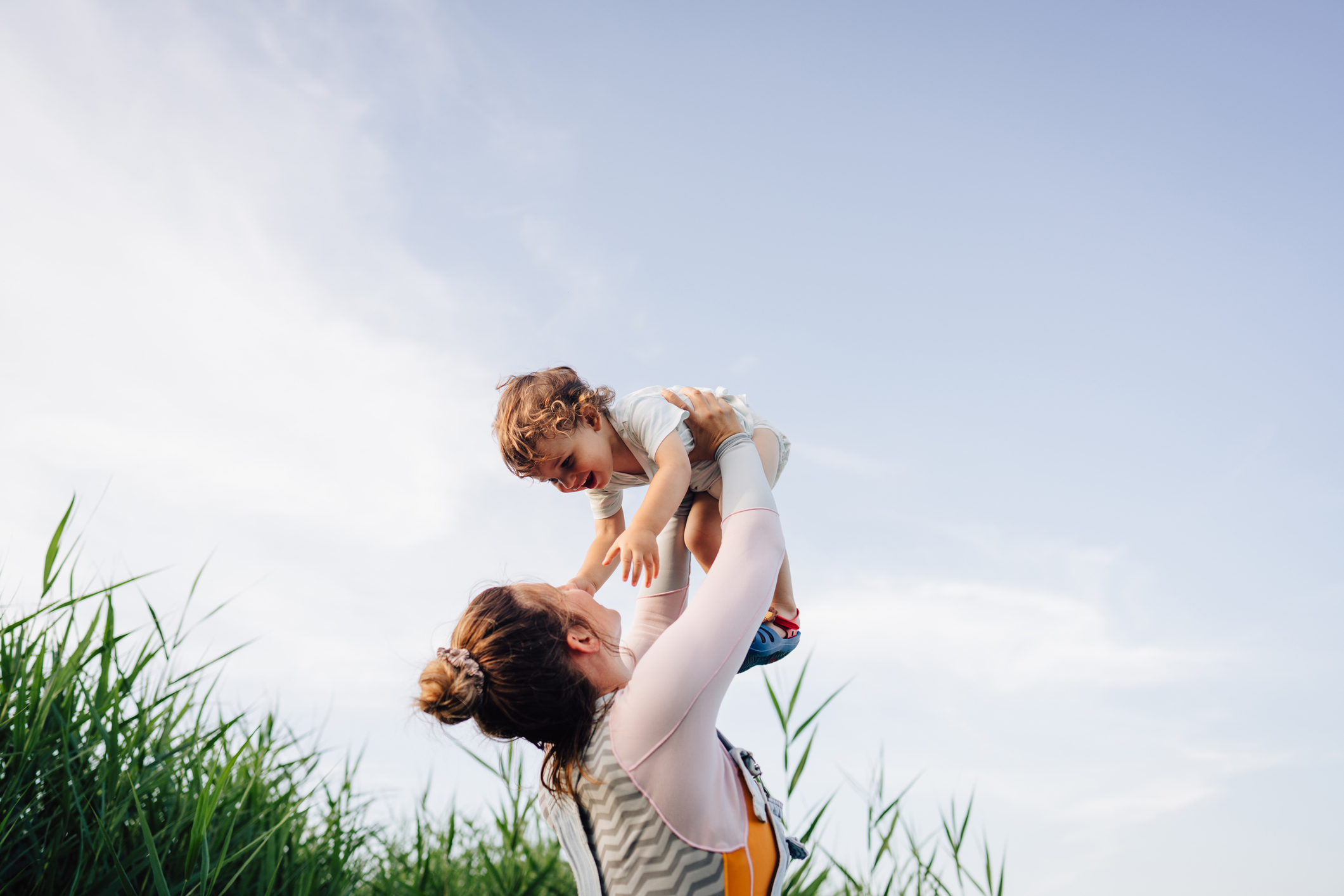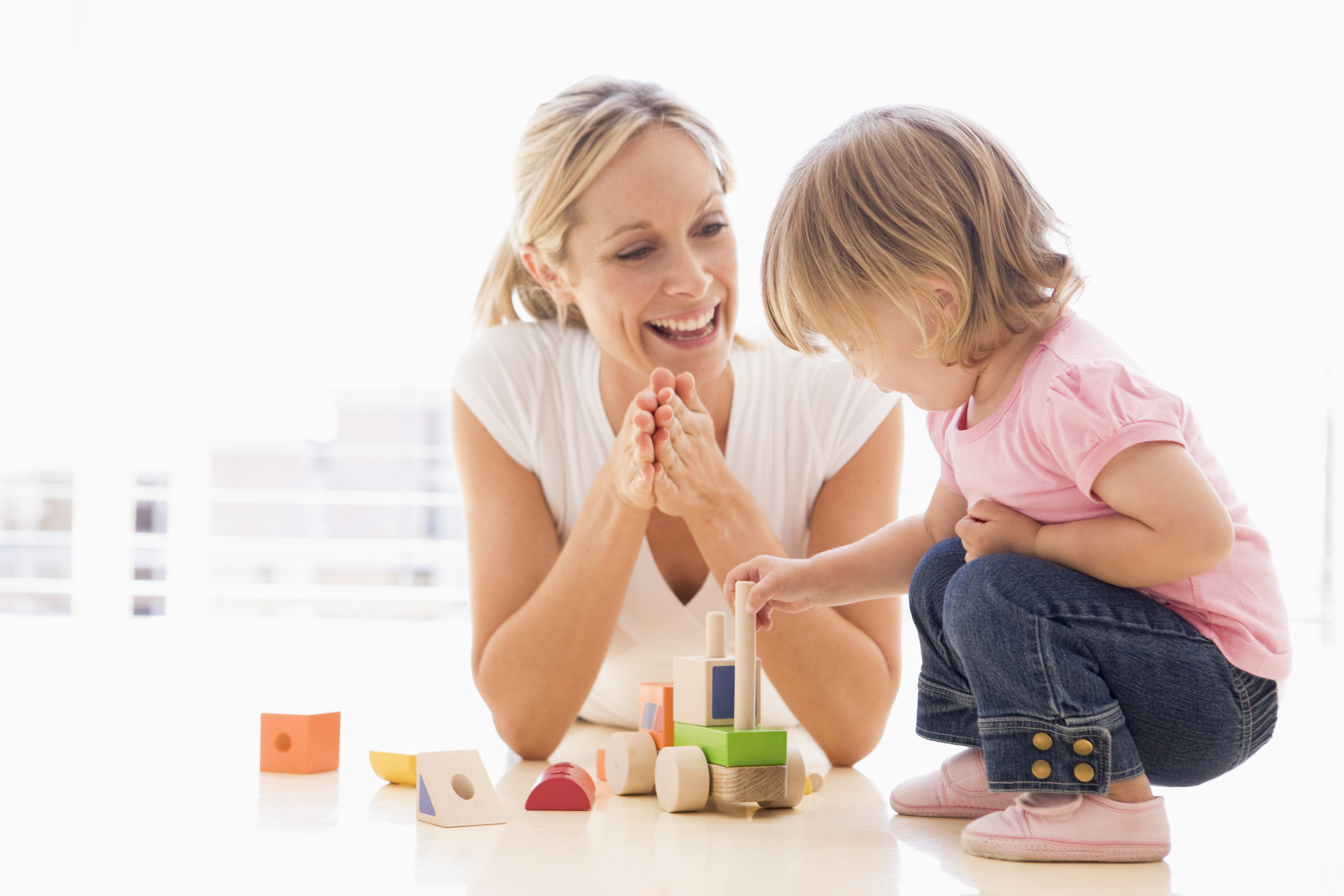My son tugged my finger. “OK, OK!” I said as he pulled me down to the carpet. “Let’s build a tower with these blocks.” My toddler squatted next to me, his pudgy fingers grasping for a block. Slowly, carefully, the structure grew. “Look! It’s almost as tall as you!” Fairly soon, he had to stand to place another block on top. When we finished, I clapped. “We did it!” But the best part had yet to come. “Go ahead,” I said to his mischievous smile. “Knock it down.” With a gentle clatter, all the blocks fell to the ground. “Again!” he cried.
Playtime is a toddler’s job. And you probably already know it’s good for your little person to spend his days exploring his world. But you might not realize the importance of play in child development hits 3 big categories.
1. Play develops kids’ relationship skills.
I stuck my sock-covered hand through the crib slats and said, “Hi! It’s meeee! Mr. Jolly Toes!” Sitting on the ground, I could see my son smile as he reached for my hand. I pulled it out of the slats and stuck it down by his feet. He laughed. “How was your nap?” I had the puppet ask. My son scooched toward the end of his mattress and grabbed my hand, squealing as I made Mr. Jolly Toes call for help.
Starting in the toddler years, playtime helps kids learn how to get along with others and make friends. Through play, they’re learning important skills like how to negotiate, share, and resolve minor conflicts. The LEGO Foundation’s educational website, Learning Through Play, says playing teaches empathy as kids learn to think about others. When you play with your child, you show him how to celebrate wins and handle losses and look at life from another’s perspective. There’s so much importance of play in child development. The hours you spend now impact your child’s future friendships.
Check out some library board books that have textured pages and read them together. Have a tea party with stuffed animals or finger paint some joint artwork.
2. Play builds physical skills.
I held my son’s hand as he put one little foot in front of the other on the curb. When he got to the end, he hopped off, turned around, and stepped up again for another go. Kiddie gyms are fun, but there are opportunities everywhere for your child to build his physical skills. From jumping from one stone paver to the next or tossing crabapples into the lake, he’s growing strong muscles and bones just by interacting with the world around him. As the CDC tells us, kids need to be physically active to build bone and muscle strength.
Chasing pigeons and crouching to examine a flower with your child are fun ways be active outside. Indoors, scoop sand with your little one or stack some blocks.
3. Play builds resilience.
“Oopsie!” My daughter wobbled and fell backward onto her diaper-padded bum. She then crawled to the couch and pulled herself up. Years from now, your child may fall down, and you’ll want her to be able to pick herself up then too. But to do so, she has to learn how to shake off mistakes and carry on when she’s young. Playtime provides lots of opportunities to deal with frustration—like when someone steals her toy or pushes her, or when she has trouble getting the triangle block to fit through the triangle slot. You really can’t underestimate the importance of play in child development and in developing resilience.
Play gives kids a chance to practice handling challenges. And according to LEGO Education president Esben Staerk writing in Scientific American, “Play can help [children] reduce anxiety, take control of their own situations, strengthen social relationships…and imagine positive scenarios.” Kids will benefit from having resilience, and that’s why we should make play an important part of the day, starting when they’re little.
You can play with bubbles and boats during bath time. And at mealtime, you can play peak-a-boo or hide finger foods under cups and have her guess which one.
The importance of play in child development can’t be understated. What do you love to play with your kids?










